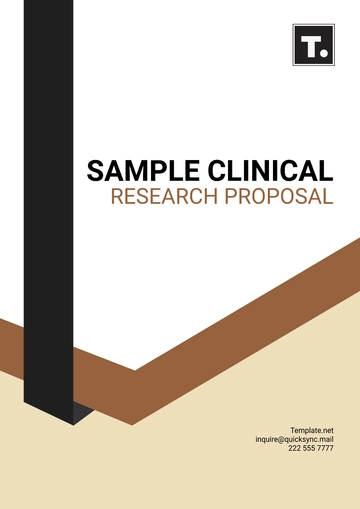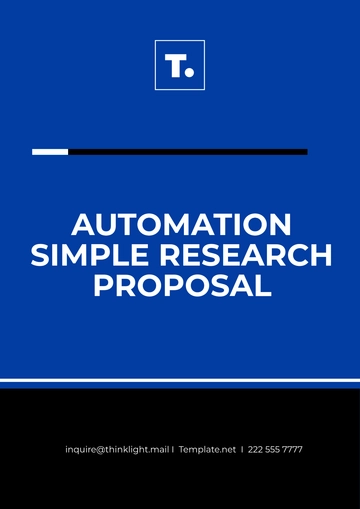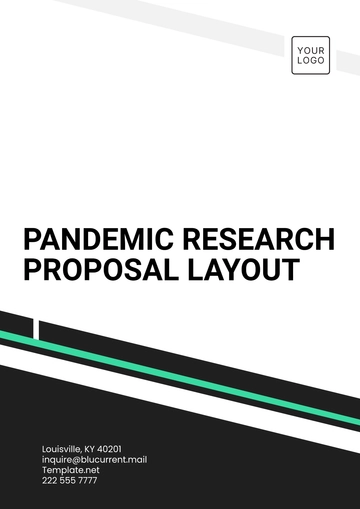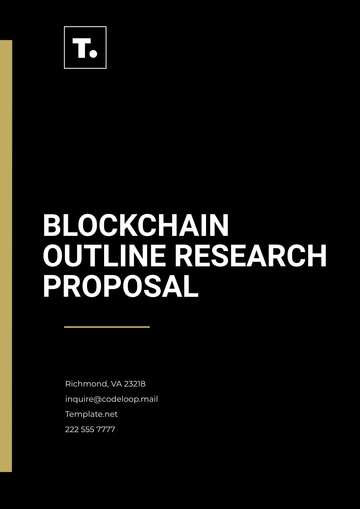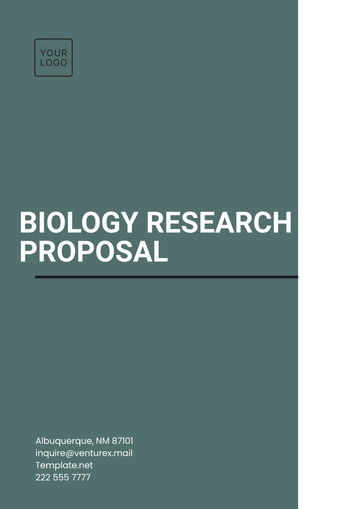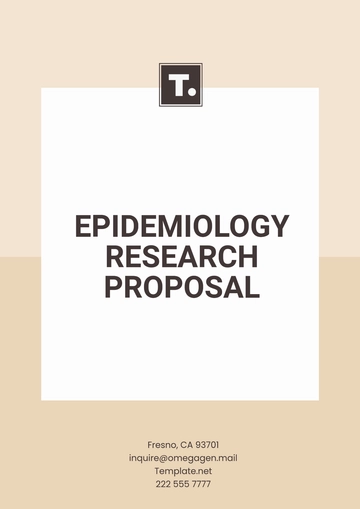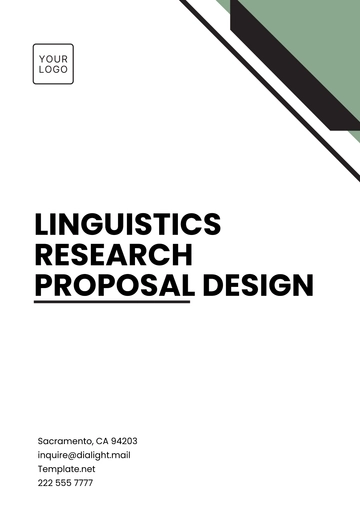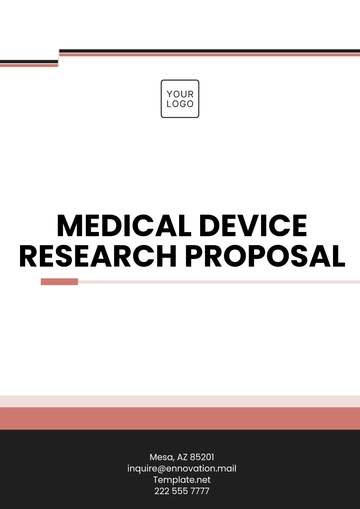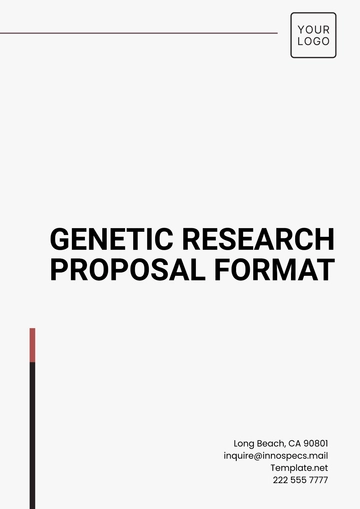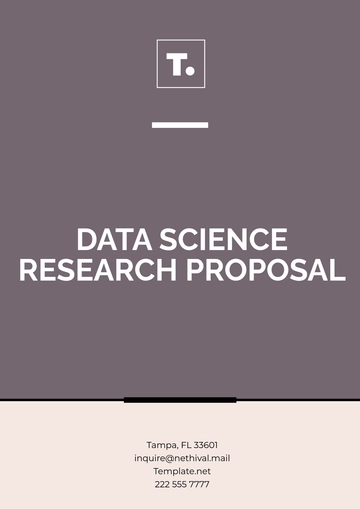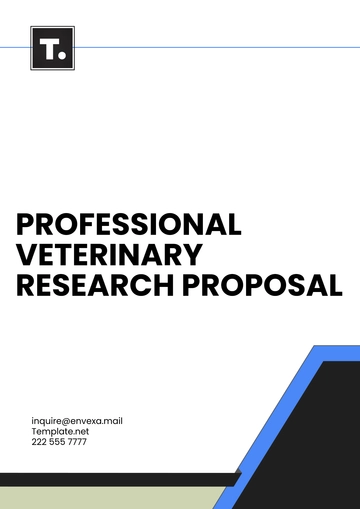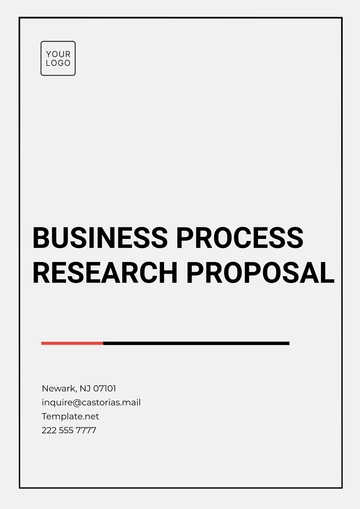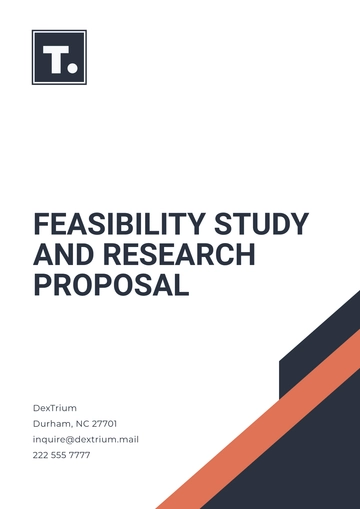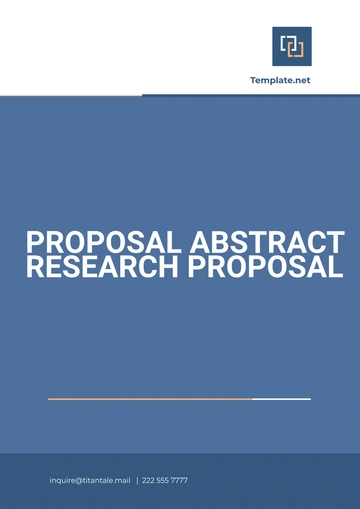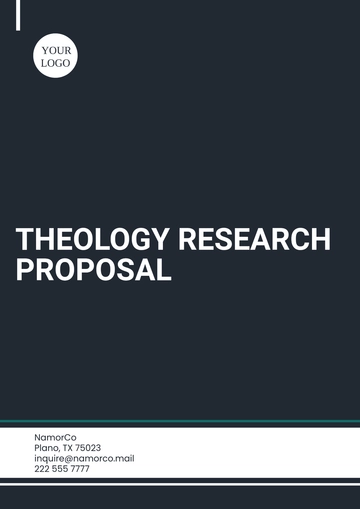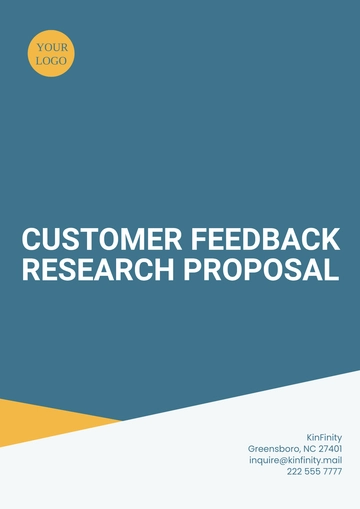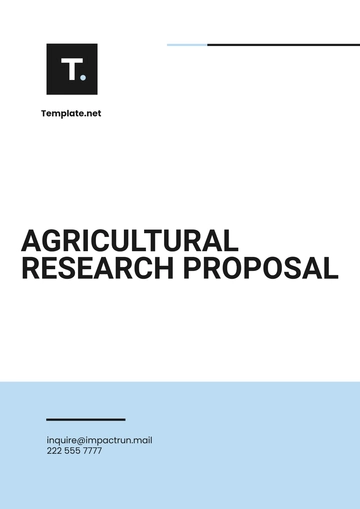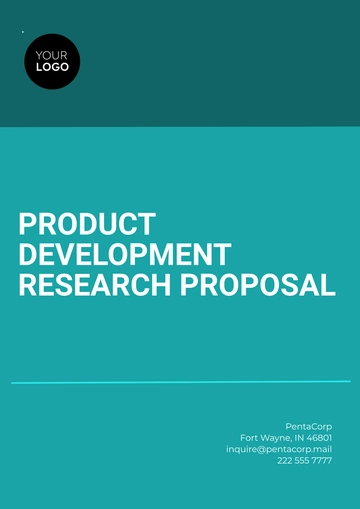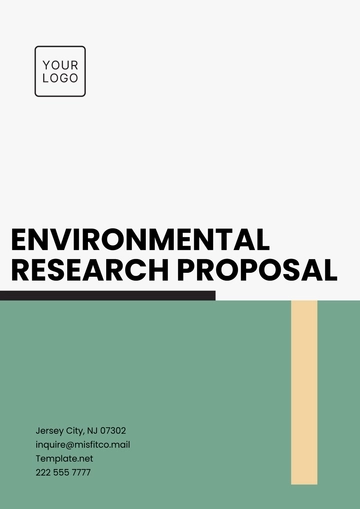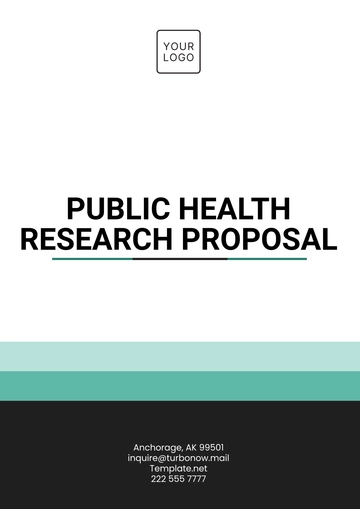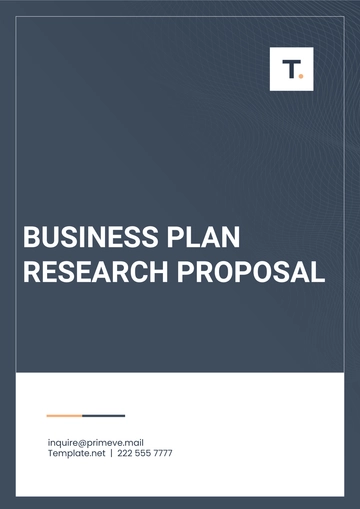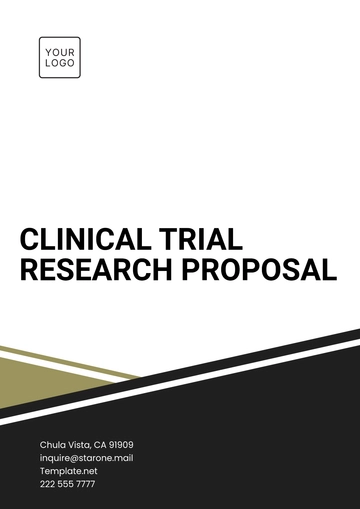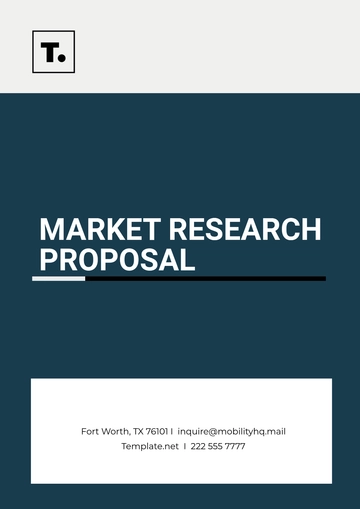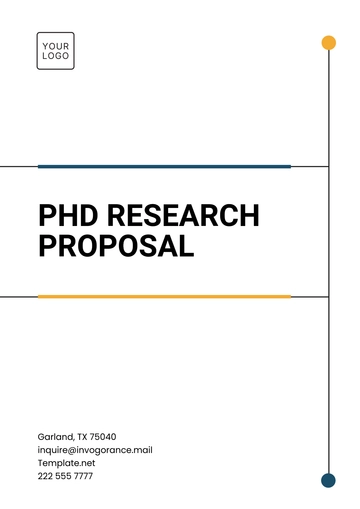Free Policy Research Proposal
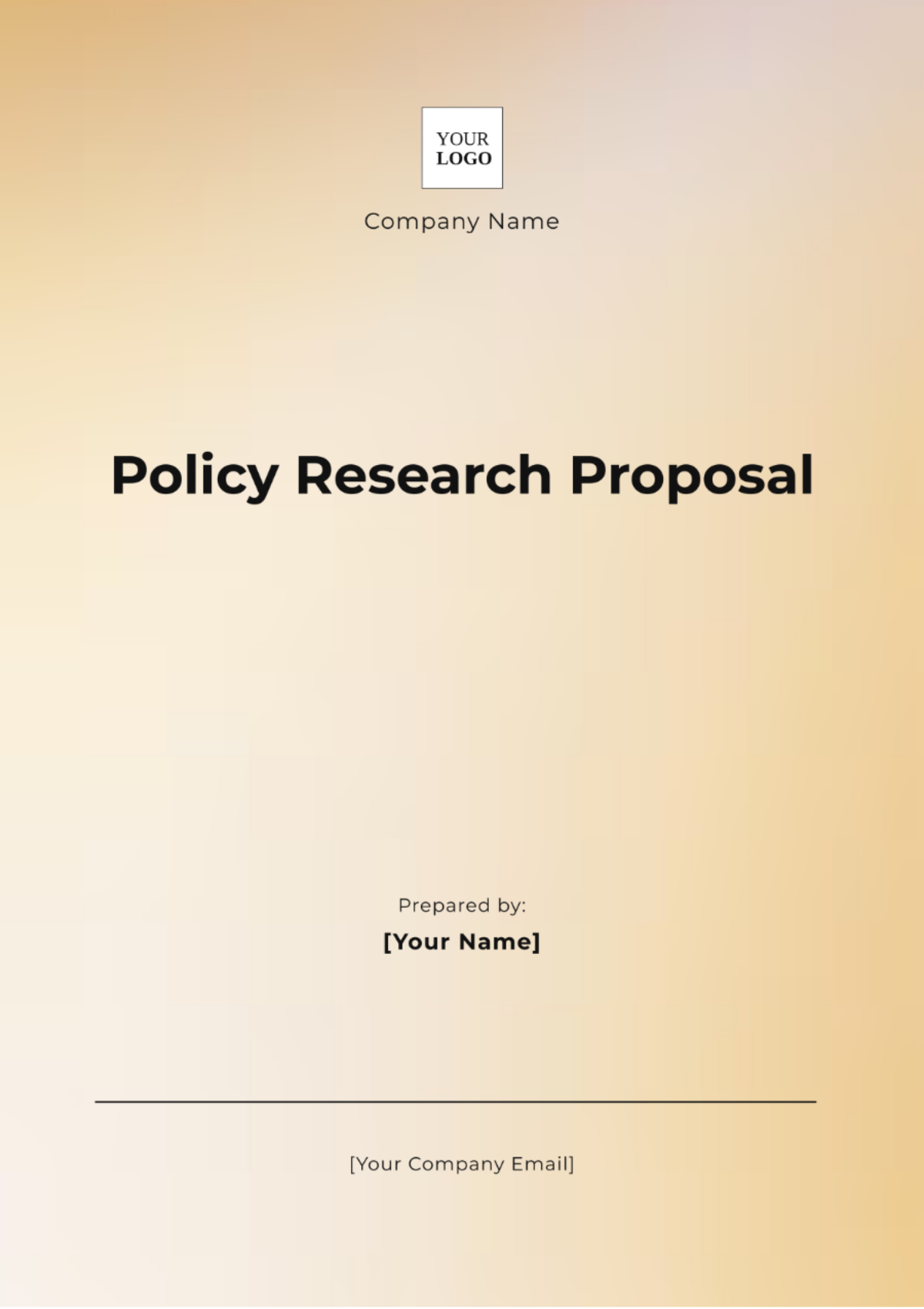
Company Name: [YOUR COMPANY NAME]
I. Executive Summary
This proposal outlines a research plan aimed at identifying key issues within the current policy framework related to urban transportation and proposing evidence-based solutions for new or revised policies. The goal is to provide actionable recommendations to enhance policy effectiveness and address emerging challenges such as traffic congestion, environmental impact, and accessibility issues in metropolitan areas.
II. Introduction
Background
In recent years, urban transportation policies have faced significant challenges, including escalating traffic congestion, rising pollution levels, and inadequate public transit options. These issues have led to increased commuter frustration and negative environmental impacts. This proposal seeks to address these challenges by conducting a comprehensive analysis of current transportation policies and developing recommendations for a more effective and sustainable policy framework.
Significance of the Research
Understanding and addressing the issues in urban transportation policy is crucial for improving quality of life, reducing environmental impacts, and ensuring that transportation systems are efficient and accessible. This research aims to provide insights and recommendations that will help policymakers design and implement policies that meet the needs of modern urban populations and adapt to future challenges.
III. Literature Review
This section will review existing research, theories, and best practices related to urban transportation policy. Key findings from previous studies will be highlighted, such as successful case studies of congestion management in other cities, advancements in sustainable transportation technologies, and effective public transit models. The literature review will identify gaps that this research aims to address, such as the need for more comprehensive data on emerging transportation trends and the effectiveness of recent policy changes.
IV. Methodology
Research Design
The research will employ a mixed-methods approach, combining quantitative and qualitative data collection and analysis. This approach will ensure a thorough understanding of the urban transportation policy landscape and the impact of various policy measures.
Data Collection
Quantitative Data: Surveys will be administered to commuters, transportation providers, and local businesses to gather data on policy impact and stakeholder experiences. Statistical analysis will be used to identify trends and correlations.
Qualitative Data: Interviews and focus groups will be conducted with key stakeholders, including city planners, transit authorities, and community leaders, to gain deeper insights into policy issues and potential solutions.
Data Analysis
Data will be analyzed using appropriate statistical tools for quantitative data and thematic analysis for qualitative data. The analysis will focus on identifying key issues, trends, and patterns relevant to urban transportation policy and its impact on various stakeholders.
V. Data and Analysis
This section will present the findings from the data collection phase. Detailed analysis will be provided, including statistical summaries of survey results and thematic insights from interviews and focus groups. Key issues, such as persistent traffic congestion and gaps in transit coverage, will be highlighted, along with trends and insights that are relevant to policy development.
Expected Outcomes
The research is expected to provide a comprehensive understanding of the issues within the current urban transportation policy framework. It will offer evidence-based recommendations for new or revised policies that address identified problems, such as enhancing public transit options, implementing congestion management strategies, and promoting sustainable transportation practices. The outcomes will contribute to more effective policy development and implementation.
VI. Recommendations
Based on the research findings, the following actionable recommendations will be outlined:
Enhance Public Transit Infrastructure: Invest in expanding and improving public transit options to better serve underserved areas and reduce reliance on personal vehicles.
Implement Congestion Management Strategies: Develop and enforce policies to manage traffic congestion, such as congestion pricing or improved traffic flow management.
Promote Sustainable Transportation: Introduce incentives for the adoption of eco-friendly transportation options, such as electric vehicles and bike-sharing programs.
Improve Data Collection and Monitoring: Establish systems for ongoing data collection and analysis to monitor policy impact and make data-driven adjustments.
VII. Conclusion
This proposal outlines a structured approach to addressing issues within the urban transportation policy framework and developing evidence-based solutions. The research aims to provide valuable insights and recommendations to guide policy development and enhance outcomes. By addressing identified challenges and proposing targeted solutions, the research will contribute to more effective and sustainable transportation policies for metropolitan areas.
- 100% Customizable, free editor
- Access 1 Million+ Templates, photo’s & graphics
- Download or share as a template
- Click and replace photos, graphics, text, backgrounds
- Resize, crop, AI write & more
- Access advanced editor
Elevate your policy research with the Policy Research Proposal Template from Template.net. This editable and customizable tool empowers you to tailor your proposals effortlessly. Designed with the latest AI Editable Tool, it simplifies your research process, allowing for swift adjustments and precision. Perfect for professionals seeking a polished, personalized proposal format.
You may also like
- Business Proposal
- Research Proposal
- Proposal Request
- Project Proposal
- Grant Proposal
- Photography Proposal
- Job Proposal
- Budget Proposal
- Marketing Proposal
- Branding Proposal
- Advertising Proposal
- Sales Proposal
- Startup Proposal
- Event Proposal
- Creative Proposal
- Restaurant Proposal
- Blank Proposal
- One Page Proposal
- Proposal Report
- IT Proposal
- Non Profit Proposal
- Training Proposal
- Construction Proposal
- School Proposal
- Cleaning Proposal
- Contract Proposal
- HR Proposal
- Travel Agency Proposal
- Small Business Proposal
- Investment Proposal
- Bid Proposal
- Retail Business Proposal
- Sponsorship Proposal
- Academic Proposal
- Partnership Proposal
- Work Proposal
- Agency Proposal
- University Proposal
- Accounting Proposal
- Real Estate Proposal
- Hotel Proposal
- Product Proposal
- Advertising Agency Proposal
- Development Proposal
- Loan Proposal
- Website Proposal
- Nursing Home Proposal
- Financial Proposal
- Salon Proposal
- Freelancer Proposal
- Funding Proposal
- Work from Home Proposal
- Company Proposal
- Consulting Proposal
- Educational Proposal
- Construction Bid Proposal
- Interior Design Proposal
- New Product Proposal
- Sports Proposal
- Corporate Proposal
- Food Proposal
- Property Proposal
- Maintenance Proposal
- Purchase Proposal
- Rental Proposal
- Recruitment Proposal
- Social Media Proposal
- Travel Proposal
- Trip Proposal
- Software Proposal
- Conference Proposal
- Graphic Design Proposal
- Law Firm Proposal
- Medical Proposal
- Music Proposal
- Pricing Proposal
- SEO Proposal
- Strategy Proposal
- Technical Proposal
- Coaching Proposal
- Ecommerce Proposal
- Fundraising Proposal
- Landscaping Proposal
- Charity Proposal
- Contractor Proposal
- Exhibition Proposal
- Art Proposal
- Mobile Proposal
- Equipment Proposal
- Student Proposal
- Engineering Proposal
- Business Proposal
